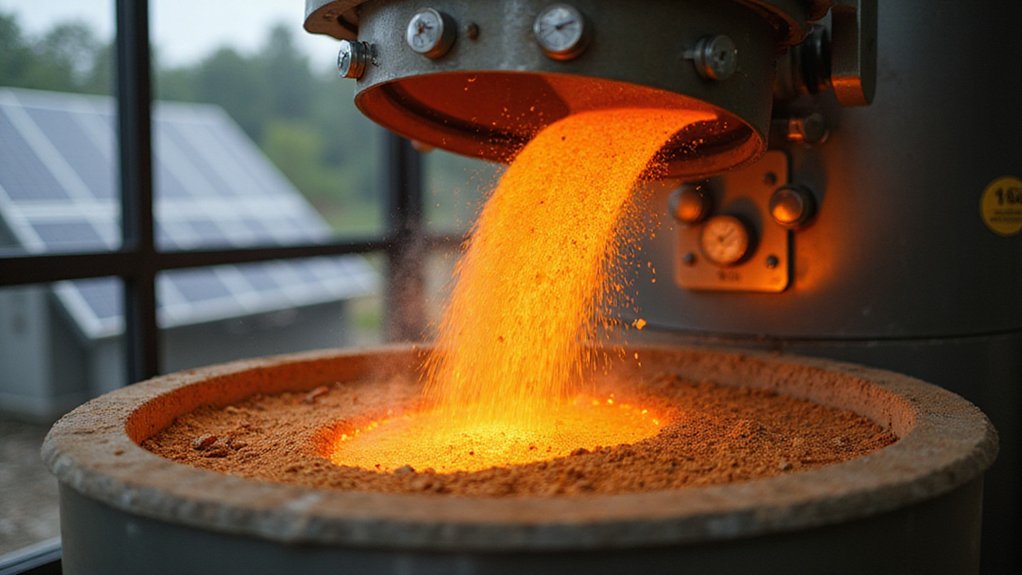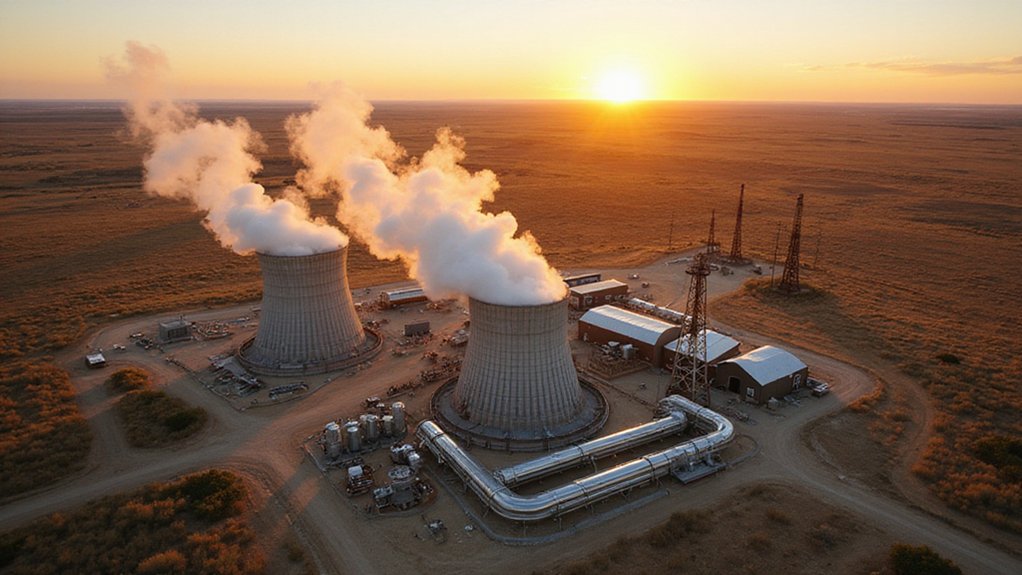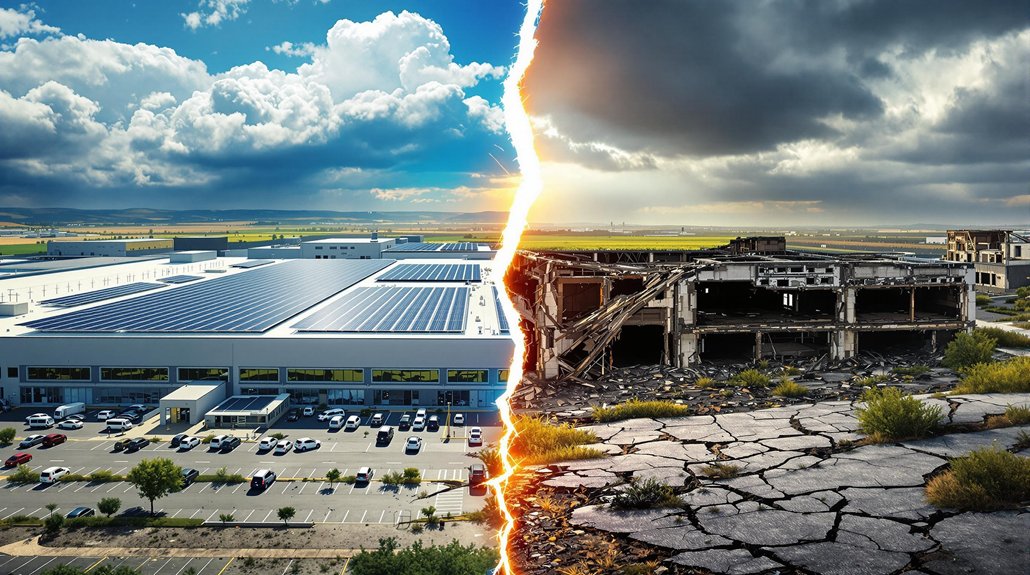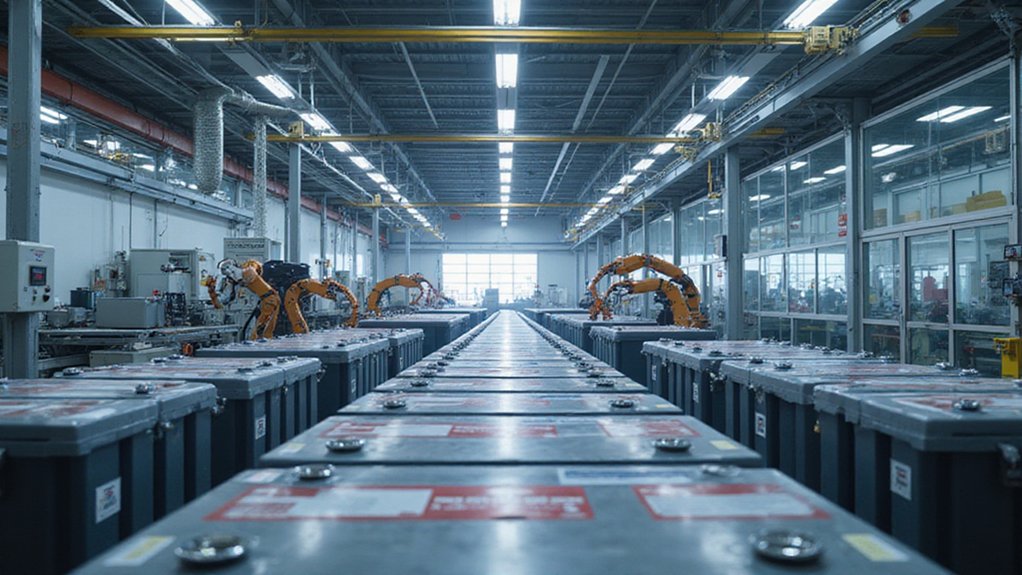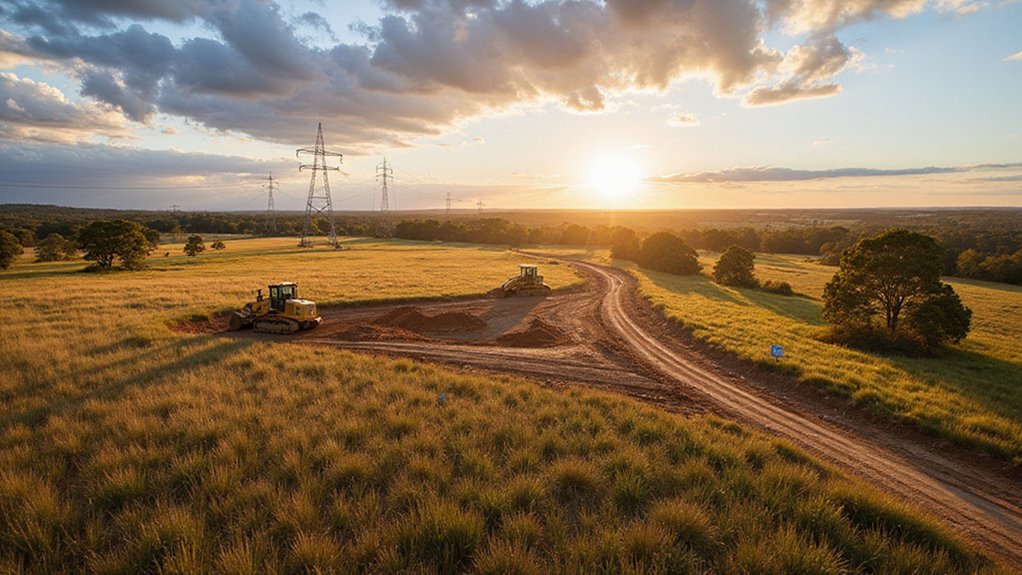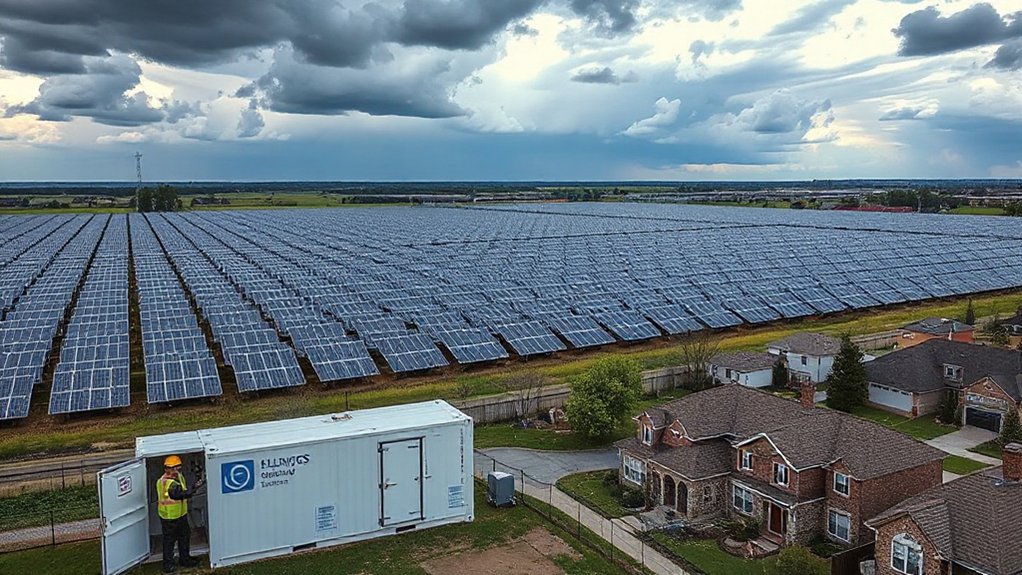A Vietnamese engineer has created a groundbreaking thermal storage system using ordinary sand. The system heats sand to 600°C, storing excess renewable energy as heat – perfect for agricultural processing needs in Vietnam. Backed by $1.5 million in funding, the startup Alterno aims to replace fossil fuels for heating rice and coffee processing. No toxic materials involved, just sand. And the payback period? Just four years. Pretty smart stuff.
Tucked away in a Vietnamese laboratory, an engineer has cracked what could be the world’s most underrated energy solution: sand. Yes, the stuff between your toes at the beach is now powering Vietnam’s future. Startup Alterno has developed a thermal energy storage system that can heat ordinary sand to a blistering 600°C, transforming a common resource into a clean energy powerhouse.
Energy’s new frontier isn’t exotic—it’s between your toes. Sand batteries are turning beaches into powerhouses at 600°C.
It’s brilliantly simple, really. Sand mixed with proprietary additives gets stored in an insulated container with specialized heat-conducting tubes. The system captures excess renewable energy and stores it as heat. And not just for a few minutes—this setup maintains high temperatures for extended periods. Unlike intermittent renewable sources, this system offers consistent availability similar to geothermal energy solutions. Way more efficient than converting electricity to heat when what you need is, well, heat.
Vietnam’s agricultural sector is first in line to benefit. Rice and coffee processing—major export industries—require consistent heat that typically comes from burning fossil fuels. Not anymore. These sand batteries deliver emission-free heating at lower costs than conventional methods. This innovative solution could help replace carbon-intensive heating sources in the agricultural sector. Farmers win. The environment wins. The only loser? Big Oil.
The economics make sense too. With a four-year payback period, these systems don’t just save the planet—they save money. This innovative technology aligns perfectly with Schneider Electric’s commitment to decarbonization and achieving Net Zero by 2050. Installations ranging from 250 kWh to 1.8 MWh can fit various operational needs. Unlike lithium-ion batteries, there’s no toxic materials or rare earth metals involved. Just sand. Abundant, non-toxic, boring old sand.
Investors have noticed. Alterno recently secured $1.5 million in oversubscribed funding led by major impact funds and Schneider Electric Energy Access Asia. The cash will help scale production across Southeast Asia, particularly targeting off-grid areas desperate for clean energy solutions.
The company aims to capture 25% of agricultural heating supply across Vietnam, Indonesia, and South Africa by 2030. That’s ambitious. But with international regulations like the EU’s Carbon Border Adjustment Mechanism putting pressure on exporters to clean up their act, sand-based energy storage isn’t just clever—it’s becoming necessary.
Who knew the future of energy was hiding in plain sight, at the beach?
References
- https://e27.co/vietnams-sand-based-thermal-energy-storage-startup-alterno-secures-us1-5m-20240402/
- https://energycentral.com/news/schneider-electric-energy-access-asia-announces-investment-startup-vietnam
- https://www.businesstimes.com.sg/international/asean/vietnam-embarks-renewables-push-battery-firms-hungry-more-green-financing
- https://tuoitrenews.vn/vietnamese-startup-raises-15mn-for-sand-battery-solution-with-carbon-emission-reduction-function-10379130.htm
- https://www.abhijeetshirke.in/sand-based-gravity-energy-storage-system/
